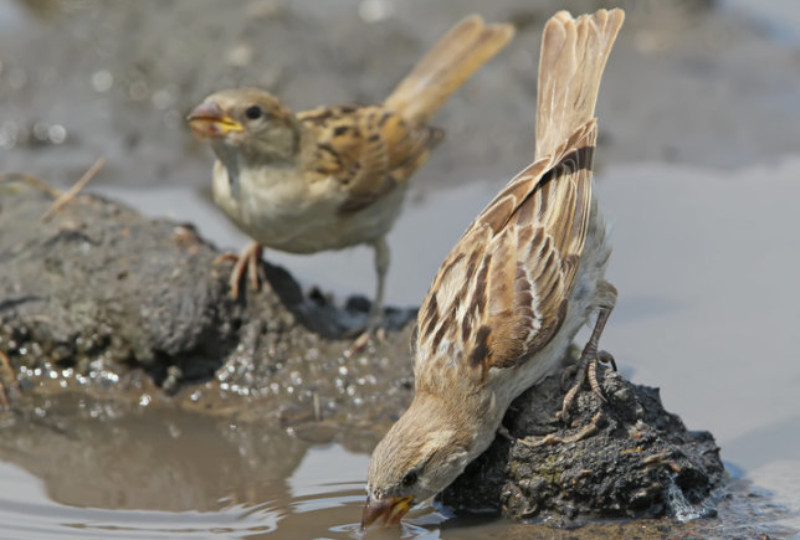11 Dec 2024

Tired Earth
By The Editorial Board

Despite being well-adapted to urban life, house sparrow numbers are falling. A study in open-access journal Frontiers in Ecology and Evolution finds that compared to sparrows living in the country, urban-dwelling birds show clear signs of stress linked to the toxic effects of air pollution and an unhealthy diet. This could have health implications for people living in cities.
"We find that house sparrows living in the city are suffering from more stress than those living in the countryside, and we link this to differences in air quality and diet," says Amparo Herrera-Dueñas, who completed this work in collaboration with the Department of Zoology and Physical Anthropology at the Complutense University of Madrid, Spain.
"It is particularly bad for urban birds during the breeding season when they are torn between allocating resources towards fighting the toxic effects of pollution or towards laying healthy eggs, both of which aren't helped by their poor diet."
She adds, "If our cities are unhealthy for birds, which is what our study is suggesting, then as their neighbors we should be concerned because we are exposed to the same environmental stressors as house sparrows."
Stress measured in urban, suburban and rural sparrows
Herrera-Dueñas and her colleagues used a non-invasive method to sample the blood of hundreds of sparrows from rural, suburban and urban areas around the Iberian Peninsula in Spain.
"We took a small blood sample from each bird, according to its weight and physical condition, and released them unharmed," she explains. The samples were analyzed for signs of oxidative stress, which can be used to measure how much an environmental stressor, such as pollution, is weakening the bird's natural defenses.
Urban sparrows show higher levels of free-radical damage
"Air pollutants or an unhealthy diet can promote the formation of free radicals. These molecules are the by-product of a normal functioning body, so our cells have developed a mechanism to counteract them. However, under demanding conditions, the production of free radicals can overwhelm these antioxidant defenses, causing oxidative stress. When this happens, free-radicals can accelerate the ageing of cells. In humans this has been linked to respiratory diseases, such as asthma, as well as cardiovascular disorders and cancer," says Herrera-Dueñas.
The researchers found that urban sparrows suffered higher levels of free-radical damage in comparison to rural birds. In addition, the blood samples revealed that city-dwelling sparrows were trying to fight off these damaging molecules but, in comparison to their rural counterparts, their natural defenses had a lower capacity to do so.
Need to improve urban environment
"We need to work hard to improve the quality of the urban environment, for example, air quality and the design of green areas. Even the leftovers that we throw in the bin at the park should encourage us to reflect on ourselves: more nuts and fruit and fewer chips and cookies would be better for humans as well as for birds," Herrera-Dueñas advises.
She adds, "During this project, I observed that the breeding season is particularly challenging for adult house sparrows but unfortunately, I do not have information on how their offspring are coping. I hope to investigate how the stresses of urban life at an early age influence the condition of these birds as they reach adulthood."
Source : www.sciencedaily.com
Comment